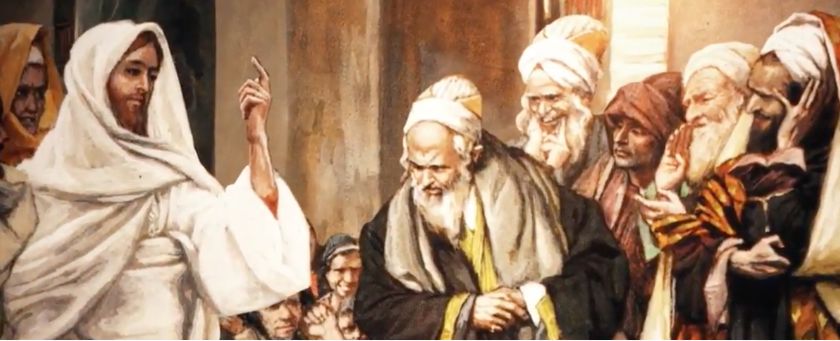We Are All Called to Bear Fruit at the Proper Time
Twenty-Seventh Sunday of Ordinary Time, Year A

Readings:
Is. 5:1-7; Ps. 80; Phil. 4:6-9; Matt. 21:33-43
The last few weeks, we have heard Jesus address the chief priests and elders of the people with parables that describe their own actions in the sight of the Lord. In the Gospel of Matthew, Jesus uses the same image as the prophet Isaiah does in the first reading: The landowner, and his vineyard, which has been entrusted to tenants. In both accounts, however, those tenants fail to care for the vineyard as the landowner has required. The requirement was simple: The tenants were to bear good fruit at the time of harvest.
In each of the parables, it is clear that the landowner represents God, and the tenants represent the leaders of the people. Both parables are a harsh critique of the religious and political aristocracy of both Isaiah’s and Jesus’ day. In fact, the political situation was very much the same for each. For Isaiah, the Assyrians were beginning to invade from the North; for Jesus, the Romans were occupying Israel. In both cases, the leadership began to cave to the invaders, even going so far as to accept bribes and kickbacks for remaining loyal to a new world power. It appeared as though they were more interested in serving men, and themselves, than serving God.
Isaiah tells us that while the landowner expected grapes, his vineyard yielded wild grapes. In other words, the Lord planted one type of vine, which should have bore a certain kind of grape, instead, those vines brought forth wild grapes. How does this happen? Well, if the grapes represent the people of Israel, all we have to do is study their history—how they began to intermingle with people from other nations, how they began to worship and sacrifice to false gods, how they forgot their roots and adopted practices that were foreign to the Law and the Commandments, how they neglected widows, orphans, and the poor. When leaders of people allow these things to happen, the result is chaos. Without clear leadership rooted in faith and truth, how are people to know right from wrong, good from bad, left from right? Wherever there is a lack of belief in God, there is a lack of love among people. The violence and rioting we see in our cities are a sign of what godlessness does to people. When leaders loose their faith, when governors use their power to suppress the freedom of others, when monsters infiltrate churches to enact heinous crimes against the faithful, what kind of fruit are they bearing? They are like wild grapes, growing out of control.
In the Gospel, Jesus describes how such leaders, the tenants, have mistreated the landowner’s servants. We might liken these first servants to the prophets sent to speak God’s word to the people, exhorting them to return to the Lord, return to the Law, but they would not have it—they stoned, beat, and killed the prophets. The second wave of prophets suffered the same fate. Up to this point in the parable, Jesus is simply recounting the history of Israel. But, when he gets to the son, he is speaking of a prophet for a new age, he is speaking of himself. And in his own prophetic way, Jesus foreshadows his own destiny when he reveals how the leaders conspire to kill him to acquire his inheritance. And it is interesting how Jesus invites the leaders to condemn themselves when he asks what the landowner should do. They say, “He will put those wretched men to a wretched death and lease his vineyard to other tenants who will give him the produce at the proper times.” Right answer, but will they follow it themselves? And what of these other tenants? Who will they be? These other tenants are the followers of Jesus, the Son of God, the rightful heir of the Kingdom. They will give him the produce at the proper time.
And so, if we were to look at our own leadership, we would have to admit, not much has changed. How are we to navigate these turbulent waters? St. Paul has beautiful words of encouragement for all of us. He says, “whatever is true, whatever is honorable, whatever is just, whatever is pure, whatever is lovely, whatever is gracious, if there is any excellence and if there is anything worthy of praise, think about these things.” In other words, focus on and live according to these values. Let nothing shake our faith; let nothing keep us from following Christ. Poor leaders and false prophets will come and go, but if we hold fast to the truth, if we hold fast to Christ, he will give us a peace beyond understanding.
And since today is the feast of St. Francis of Assisi, perhaps we all might pray:
Where there is hatred, let me sow love,
Where there is injury, pardon;
Where there is doubt, faith;
Where there is despair, hope;
Where there is darkness, light;
And where there is sadness, joy.”
Given during the COVID-19 pandemic.





Share this post
Twitter
Facebook
Pinterest
Email